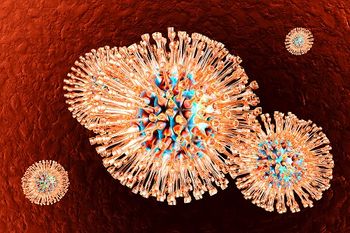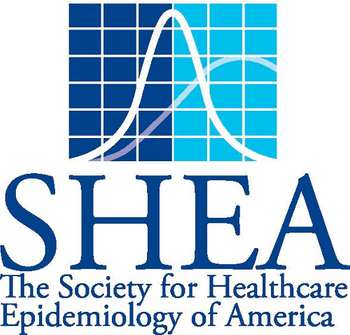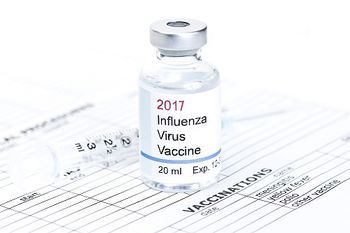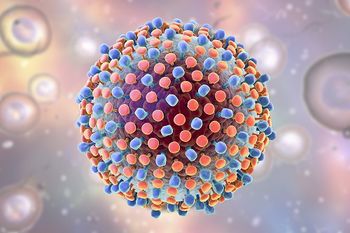
New research suggests that the current National Health Safety Network (NHSN) catheter-associated urinary tract infection (CAUTI) definition may not truly reflect clinical UTI in neurosurgical intensive care unit (NSICU) patients.

New research suggests that the current National Health Safety Network (NHSN) catheter-associated urinary tract infection (CAUTI) definition may not truly reflect clinical UTI in neurosurgical intensive care unit (NSICU) patients.

This week’s Public Health News Watch focuses on the repeal of the Affordable Care Act and how the opioid epidemic in the United States needs plays a pivotal role in any suggested replacements.

Although cases of influenza A are on the decline, a late season surge in influenza B cases are helping to extend flu season across parts of the United States.

Researchers have found that individuals with cytomegalovirus retinitis have a more advanced HIV infection than individuals with ocular syphilis.

Researchers have discovered that women who experience active genital herpes infection early in their pregnancy may be more likely to have a child who will later be diagnosed with autism spectrum disorder.

Researchers have found that cases of ocular syphilis have been increasing in North Carolina and that the prevalence of ocular syphilis was almost twice as high among HIV-positive patients as among those who were HIV negative or HIV unknown.

Reports of serious consequences from severe streptococcal infections have caused fear among the general public, but is this fear warranted?

Centers for Disease Control and Prevention researchers find that in women who have rectal intercourse, rectal sexually transmitted infections chlamydia and gonorrhea can be almost as common as urogenital infections.

Contagion® will be covering the conference, and so keep a look out for session coverage, as well as interviews with some of the key presenters.

Preliminary data from the Agency for Healthcare Research and Quality’s (AHRQ) “National Scorecard on Rates of Hospital-Acquired Conditions” suggests that progress has been made in reducing the incidence of hospital-acquired infections and other facility-linked health problems in US hospitals.

Recent research has revealed that some adolescents may be overtreated or undertreated for the sexually transmitted infections (STIs) chlamydia and gonorrhea when presenting to the emergency department (ED).

In case you missed them, our top 5 articles for the week of March 19, 2017 are highlighted here.

Researchers find that rapid diagnostic testing may be the key to improving testing and treatment for chlamydia and gonorrhea.

The results of a new study have revealed that older women and African Americans are less likely to get vaccinated against influenza.

A multi-institution research team has found that daptomycin is effective and well-tolerated in children.

As we reflect on the progress made in the fight against tuberculosis (TB), the Centers for Disease Control and Prevention stress that without actions to accelerate progress, the goal of eliminating TB in the United States by the end of the century will not be met.

Our outlook on infectious diseases as threat to safety is outdated, but how do we change it?

A mumps outbreak that began in the country last fall is continuing across the United States. New research suggests that even small populations of unvaccinated individuals may be fueling the outbreak.

Fewer expectant mothers infected with HIV transmit the virus to their babies, but gaps in treatment persist. More infants could be protected with proper screening and treatment.

Researchers from the University of Oxford and Janssen Pharmaceuticals believe they have demonstrated an Ebola vaccine approach that fosters immunity for up to 1 year.

Harvard T. H. Chan School of Public Health researchers report that a new rotavirus vaccine was found to be 66.7% effective.

Duke Health researchers have found that a UVC machine use can reduce transmission of harmful superbugs in hospital settings.

Flu activity continues to drop across the country, but new outbreaks continue as health officials predict a flu season that could last until May in some areas.

Research has found that women who were forced to have sex and were diagnosed with an sexually transmitted disease (STD) were less likely to receive treatment compared with women who did not experience forced sex.

This week’s Public Health News Watch focuses on recent claims in the media that the budget cuts proposed by the Trump administration will have a negative impact on healthcare outcomes and patient safety.

Johns Hopkins University School of Medicine researchers provide insight on how HCV evades the human immune response and why developing an HCV vaccine has been difficult.

Guidelines for the human papillomavirus (HPV) vaccine include recommendations on which populations of individuals should receive either the 2-dose or 3-dose regimen.

A new study shows a significant reduction in rates of pneumococcal bacteremia in young children since the introduction of the pneumococcal conjugate vaccine.

Contagion® takes a closer look at how Staphylococcus aureus infections continue to plague professional sports players.

As emerging infectious diseases and resistant bugs become a growing issue, the need for stronger disinfectants becomes even more vital.